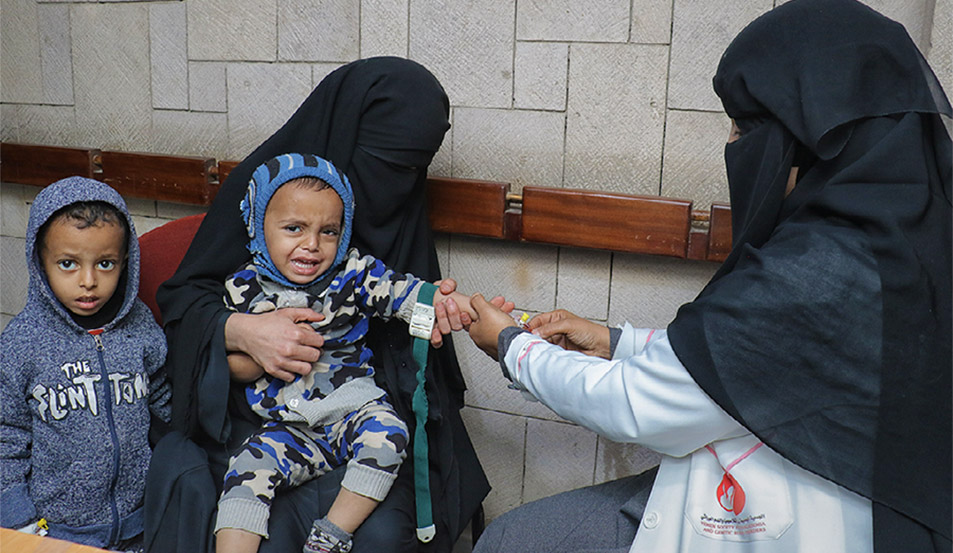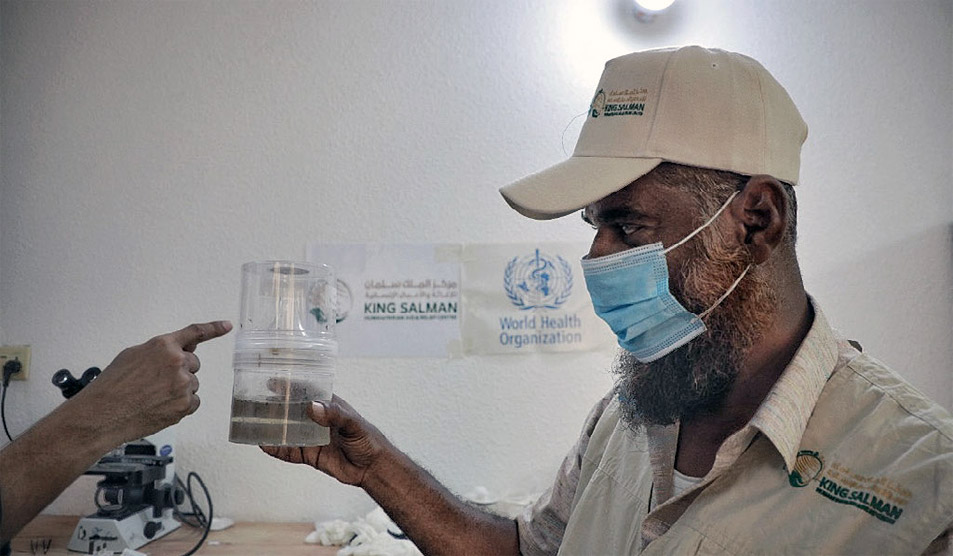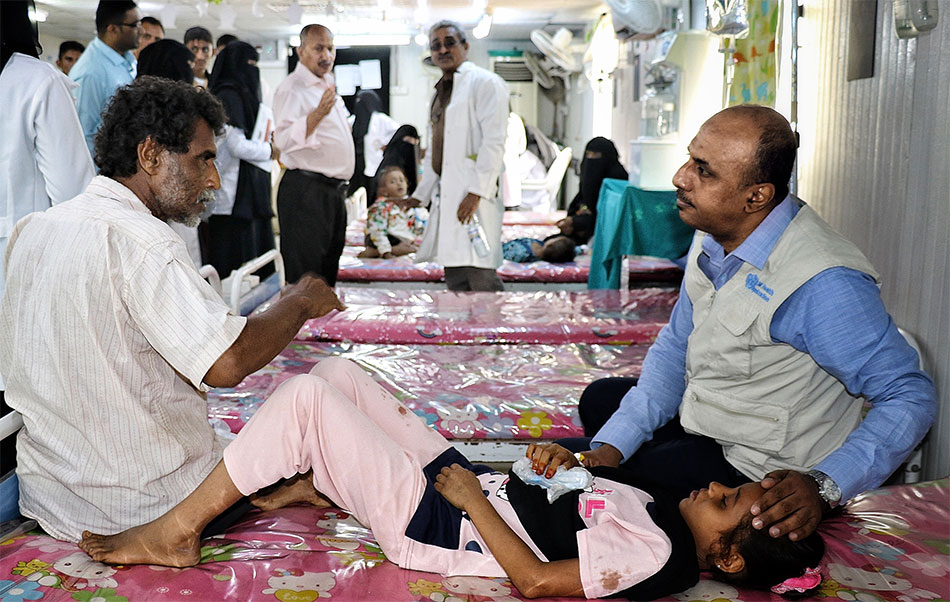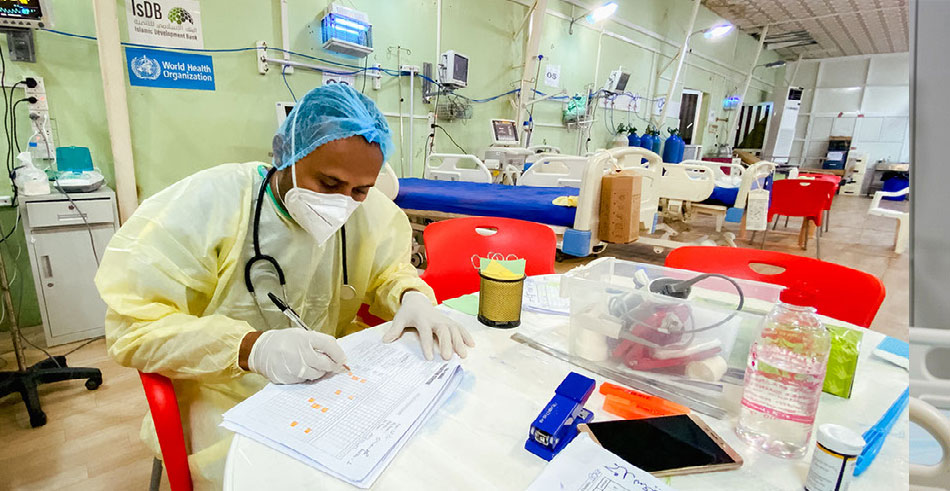WHO and IsDB in Yemen: ensuring treatment for children with genetic blood disorders

23 February 2022- Thousands of Yemeni children and adolescents suffer from thalassemia, a genetic blood disorder that causes anemia, fatigue, stunting, and even death. The disorder is manageable with blood transfusions and iron-chelating drugs, and patients who are treated can live normal lives. But the country's ongoing conflict has severely disrupted the supply of essential medicines for blood disorders, putting the health and lives of patients at risk.
Volunteering for the fight against malaria in Yemen

17 January 2022 – WHO has joined forces with King Salman Humanitarian Aid and Relief Centre to support malaria prevention and control efforts across the country.
As part of the malaria project, WHO, in partnership with KSrelief, has implemented vector control and indoor residual spraying campaigns in 13 governorates, reaching 5 424 381 people. Three main vector control interventions included space fogging, entomological surveillance, and community awareness to enhance detection and management of mosquitoes breeding sources.
Dr Ahmed Al-Soofi: serving with excellence on the front lines of Yemen’s health crisis

30 December 2021 - It was late in the evening on 7 December 2021 when Dr Ahmed Al-Soofi received an email unlike any other in his 16 years of working with WHO in Yemen.
"It was the biggest surprise of my life!" said Dr Ahmed. "At first I didn’t understand it. Then I made two phone calls to my mother and my wife. I told them it would not have been possible without their love and support. I can’t explain how I felt. I was so happy."
Health workers in Yemen fight for the lives of COVID-19 patients

28 December 2021 - "Imagine becoming like family for a complete stranger, like everything they have in life and like their lifeline. During my work for the COVID-19 response, we work tirelessly to save the lives of these patients and offer them care and support in their fight against the disease," says Fadhl Ismail, a health worker in the Al Amal isolation centre in Aden since the first COVID-19 wave in March 2020.








